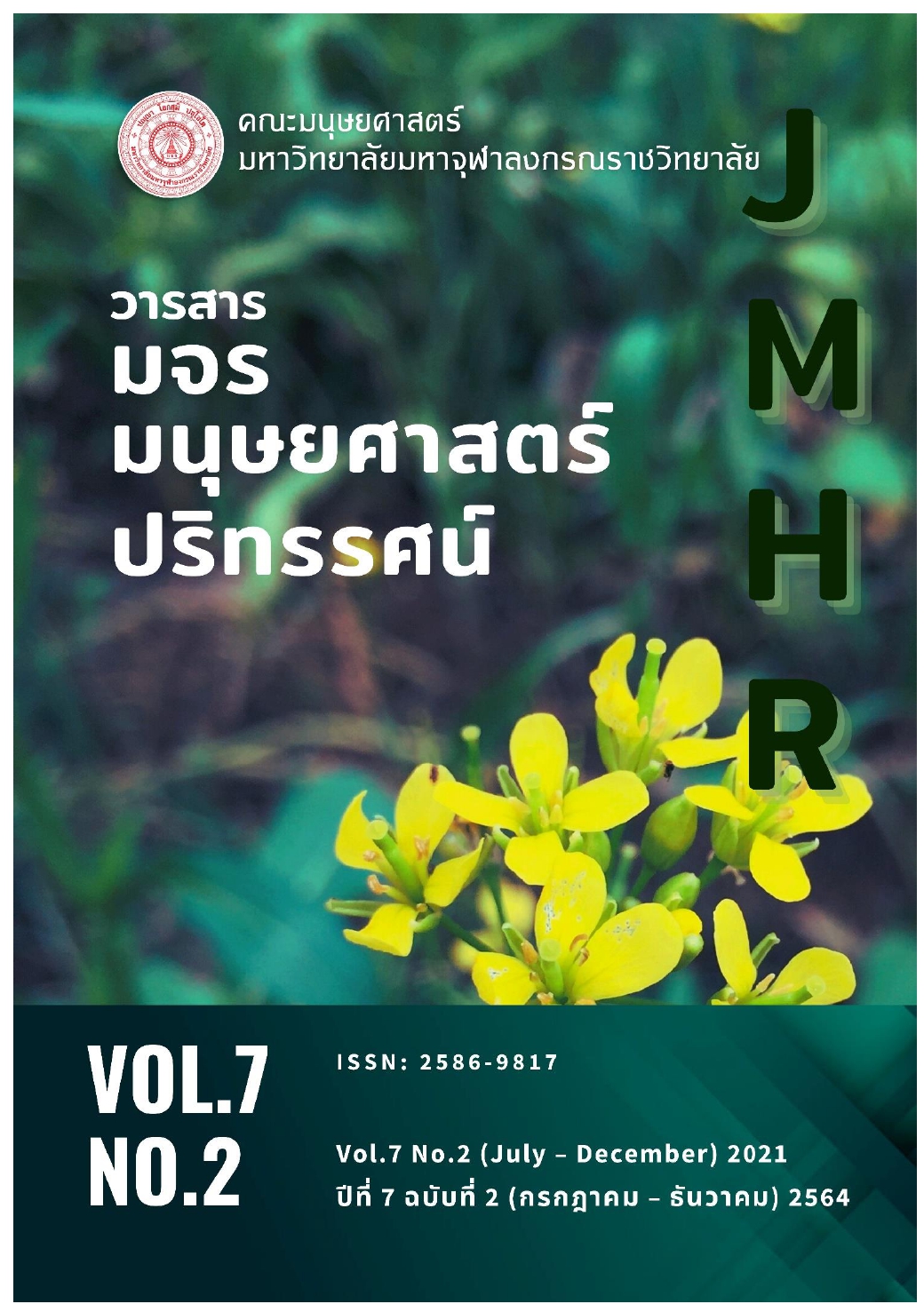รูปแบบการพัฒนาศักยภาพผู้บริหารระดับกลางในกลุ่มผู้ประกอบการสื่อสารโทรคมนาคมยุคดิจิทัล
คำสำคัญ:
รูปแบบการพัฒนา, ผูู้้บริหารระดับกลาง, ผู้ประกอบการ, สื่อสารโทรคมนาคมบทคัดย่อ
การวิจัยครั้งนี้มีวัตถุประสงค์เพื่อ 1) ศึกษาองค์ประกอบของศักยภาพผู้บริหารระดับกลางในกลุ่มผู้ประกอบการสื่อสารโทรคมนาคมยุคดิจิทัล และ 2) พัฒนารูปแบบศักยภาพผู้บริหารระดับกลางในกลุ่มผู้ประกอบการสื่อสารโทรคมนาคมยุคดิจิทัล กลุ่มตัวอย่างในการวิจัยเชิงคุณภาพจำนวน 10 คน และการวิจัยเชิงปริมาณจำนวน 400 คน ซึ่งเป็นผู้บริหารระดับกลางขึ้นไปของธุรกิจสื่อสารโทรคมนาคม เครื่องมือที่ใช้ ได้แก่ แบบสัมภาษณ์ และแบบสอบถาม สถิติที่ใช้ ได้แก่ค่าความถี่ ค่าเฉลี่ย ค่าร้อยละ ค่าเบี่ยงเบนมาตรฐาน และการวิเคราะห์องค์ประกอบ
ผลการวิจัยพบว่า องค์ประกอบของศักยภาพผู้บริหารระดับกลางในกลุ่มผู้ประกอบการสื่อสารโทรคมนาคมยุคดิจิทัล ได้แก่ ด้านทักษะการจัดการ ประกอบด้วย 1) การบริหารองค์กร 2) การเพิ่มประสิทธิภาพในการทำงาน และ 3) การจัดการนวัตกรรม และ ด้านบทบาทการจัดการ ประกอบด้วย 1) การประสานงาน 2) การตัดสินใจ และ 3) การจัดการข้อมูล ส่วนรูปแบบการพัฒนาศักยภาพผู้บริหารระดับกลางในกลุ่มผู้ประกอบการสื่อสารโทรคมนาคมยุคดิจิทัล ประกอบด้วยองค์ประกอบหลักด้านทักษะการจัดการ ได้แก่ การบริหารองค์กร มีจำนวน 12 องค์ประกอบย่อย การเพิ่มประสิทธิภาพในการทำงาน มีจำนวน 4 องค์ประกอบย่อย และ3) ความสามารถในการจัดการนวัตกรรม มีจำนวน 3 องค์ประกอบย่อย องค์ประกอบหลักด้านบทบาทการจัดการ ได้แก่ การประสานงาน มีจำนวน 6 องค์ประกอบย่อย 2) การตัดสินใจ มีจำนวน 5 องค์ประกอบย่อย และ 3) การจัดการข้อมูล มีจำนวน 2 องค์ประกอบย่อย
เอกสารอ้างอิง
กองบริหารงานวิจัยและประกันคุณภาพ. (2559). พิมพ์เขียว Thailand 4.0 โมเดลขับเคลื่อนประเทศไทยสู่ความมั่งคั่ง มั่นคงและยั่งยืน. สืบค้น 14 มกราคม 2563, จาก https://waa.inter.nstda.or.th/stks/pub/2017/20171114-draeqa-blueprint.pdf
กฤตชน วงศ์รัตน์. (2553). การพัฒนาสมรรถนะในการปฏิบัติงานของผู้จัดการฝ่ายผลิตในโรงงานอุตสาหกรรมไฟฟ้าและอิเล็กทรอนิกส์ (วิทยานิพนธ์บริหารธุรกิจดุษฎีบัณฑิต สาขาวิชาการพัฒนาธุรกิจ อุตสาหกรรมและทรัพยากรมนุษย์). บัณฑิตวิทยาลัย มหาวิทยาลัยเทคโนโลยีพระจอมเกล้าพระนครเหนือ. กรุงเทพฯ.
จรัญญา มั่นต่อ. (2548). ความคิดเห็นของข้าราชการกรมธนารักษ์ที่มีต่อภาวะผู้นำของผู้บริหาร (วิทยานิพนธ์รัฐประศาสนศาสตรมหาบัณฑิต สาขาวิชารัฐประศาสนศาสตร์). บัณฑิตวิทยาลัย, มหาวิทยาลัยเกษมบัณฑิต. กรุงเทพฯ.
ธนบูรณ์ กิตติ์จิรพัฒนากร. (2552). สมรรถนะการบริหารของผู้บริหารระดับกลางของอุตสาหกรรมการโรงแรมในภาคใต้ของประเทศไทย (วิทยานิพนธ์ปรัชญาดุษฎีบัณฑิต สาขาวิชารัฐประศาสนศาสตร์). บัณฑิตวิทยาลัย, มหาวิทยาลัยรามคำแหง. กรุงเทพฯ.
พงกะพรรณ ตะกลมทอง. (2555). รูปแบบการพัฒนาภาวะผู้นำผู้บริหารระดับกลาง สังกัดสำนักงานคณะกรรมการศึกษาขั้นพื้นฐาน (วิทยานิพนธ์ครุศาสตรดุษฎีบัณฑิต สาขาวิชาการบริหารการศึกษา). มหาวิทยาลัยราชภัฎอุดรธานี. อุดรธานี.
ภานุวัฒน์ ศิรินุพงศ์. (2554). การศึกษาทักษะด้านการจัดการงานซ่อมบำรุงในอุตสาหกรรม ผลิตชิ้นส่วนอิเล็กทรอนิกส์ (สารกึ่งตัวนำ) แผงวงจรรวม (วิทยานิพนธ์บริหารธุรกิจดุษฎีบัณฑิต สาขาวิชการพัฒนาธุรกิจอุตสาหกรรมและทรัพยากรมนุษย์). บัณฑิตวิทยาลัย, มหาวิทยาลัยเทคโนโลยีพระจอมเกล้าพระนครเหนือ. กรุงเทพฯ.
มนู อรดีดลเชษฐ์. (2554). กรอบนโยบายเทคโนโลยีสารสนเทศและการสื่อสารระยะ พ.ศ.2554-2563 ของประเทศไทย ICT2020. กรุงเทพฯ : กระทรวงเทคโนโลยีสารสนเทศและการสื่อสาร.
สำนักงานเศรษฐกิจอุตสาหกรรม. (2561). กระทรวงอุตสาหกรรมตอกย้ำโมเดลประเทศไทย 4.0 ต่อยอด 5 กลุ่มเทคโนโลยี-อุตสาหกรรมเป้าหมาย สู่เวทีโลกการค้าโลก. สืบค้น 23 มกราคม 2563, จาก https://www.ryt9.com/s/oie/2641648
Cronbach, L. J. (1990). Essentials of psychological testing (5th ed.). New York : Harper Collins Publishers. ( pp.202-204)
Likert, R. (1993). A Technique for the Measurement of Attitude. Chicago : Rand Mc Nally.
Mintzberg Henry. (1975). The Manage’s Job : Folklor and Fact. Harvard Business Review. July-August 1975, 49-61.






